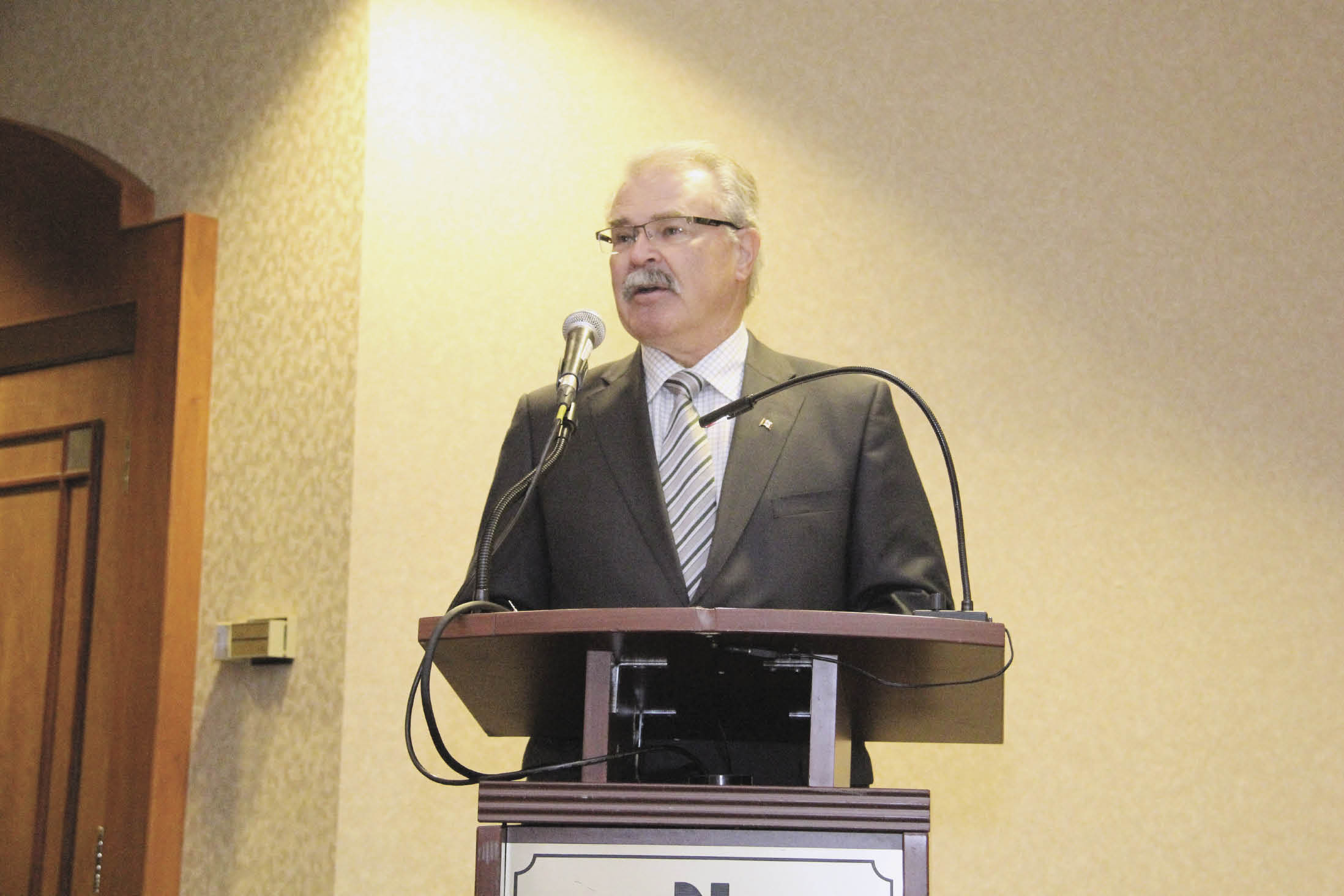Gerry Ritz says rail performance, which is being monitored, is adequate given the big crop to move
Agriculture Minister Gerry Ritz says he has yet to see conclusive proof that the railways aren’t doing an adequate job moving this year’s bumper crop to market.
“I hear a lot of anecdotal evidence and I follow it up and say, ‘give me the car numbers… give me the dates,’ and nobody can, nobody has,” Ritz told the Grain Industry Symposium Nov. 19.
“I know there are some situations out there where there’s a lot of friction, but with the crop we’ve got, the system is working as good as we can expect it to.”
Read Also

MANITOBA AG DAYS: Wild oat resistance tightens its grip in Manitoba
Herbicides are increasingly failing to control wild oats as the weed pops up across Manitoba farm fields.
As of the first week of November the Canadian Grain Commission reported western farmers had delivered 7.6 million tonnes of wheat, durum and barley, well ahead of last year’s pace and up 30 per cent compared to the same time during the last year of the Canadian Wheat Board’s single desk.
“In any business that is called cash flow and it’s not a bad thing,” Ritz said.
“We will continue to press Transport Canada to monitor it closely, to take the review coming up in 2015 (of the Fair Rail Freight Service Act) seriously,” he said.
The railways are each moving 5,000 to 5,500 cars a week to export ports — a traditionally high number, Wade Sobkowich, executive director of the Western Grain Elevator Association (WGEA), said in a later interview.
“But we compare car supply versus demand, not history,” he said. “We need more rail capacity.”
Grain companies report a weekly shortfall of between 1,000 to 2,000 cars with a backlog of around 18,000 cars and rising. However, Sobkowich suspects grain companies are not selling as aggressively as they would like to fearing they won’t be able to deliver on time.
Keystone Agricultural Producers president Doug Chorney told Ritz current railway performance “is not acceptable.”
Ritz said part of the problem was with farmers who didn’t contract to deliver ahead of time.
“Those are the guys who will be held for a while,” Ritz said. “If you contracted, that grain is moving.”
“Not in my case,” Chorney replied. “I’ve got contracted grain off the combine and haven’t moved a bushel off my farm yet.”
Ritz told reporters later he’s in constant contact with grain companies about rail service.
“I’ve asked them to keep me up to speed on what’s working, what’s not working, so I can flow it through to Transport Canada and directly to the railways to make sure they understand that we are watching,” he said.
Meanwhile, Ritz is also hearing calls from grain shippers to put more teeth in the Fair Rail Freight Service Act, which became law earlier this year. The government said the new law compelling the railways to enter into service agreements with shippers would “improve the predictability, clarity and reliability of rail freight service across Canada.”
However, a coalition of rail users, including the WGEA, complains the legislation doesn’t go far enough.
“The farm groups and industry are telling me they want to see some more teeth in it so they can put some bite into it that has the railways a little more co-operative up front — before there’s a wreck, make sure you have the ability to handle a wreck,” Ritz said.
Is it fair to link the new open market with an increase in grain shipping given that traditionally movement increases following a bumper crop? Ritz said farmers now have more direct access to the grain-handling and -transportation system.
“I’ve talked to some farmers in my area,” he said. “One guy moved 55 super Bs right off the combine, another guy moved 65. So there’s that ability, whereas they used to sit and wait for a three-bushel quota. They had to bin it first and then move it. There is some stress on the system because the system is much more open than it was before.”
During his formal address Ritz said Canada exported a record $47.7 billion of agricultural products last year, and exports so far this year are seven per cent ahead of that pace.
Ritz said the open market for western wheat and barley, created Aug. 1, 2012, has been a success.
“Today, we are already into the second year of marketing freedom and despite a handful of rumblings from the full-moon crowd, the sky is still up there where it should be,” Ritz said.


















